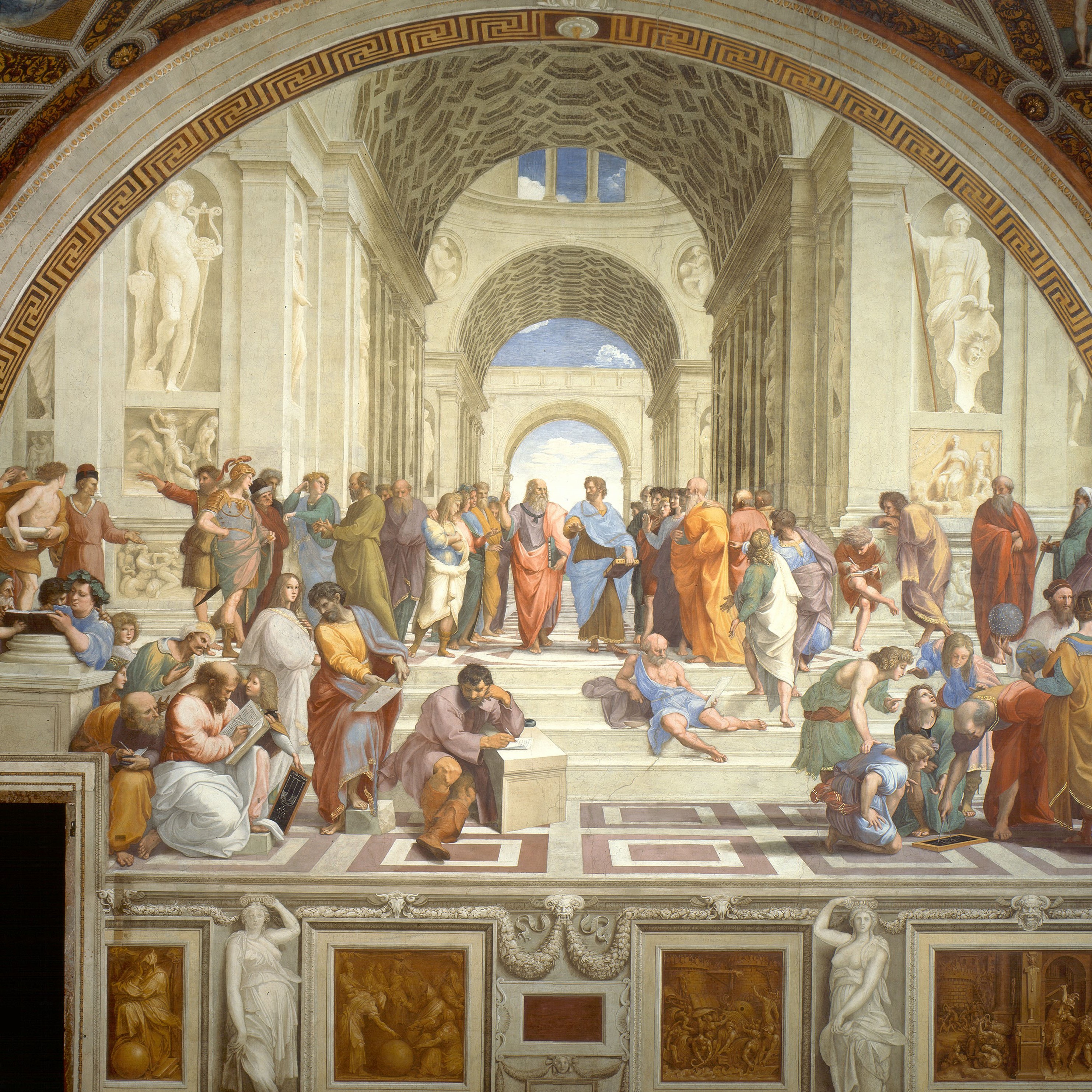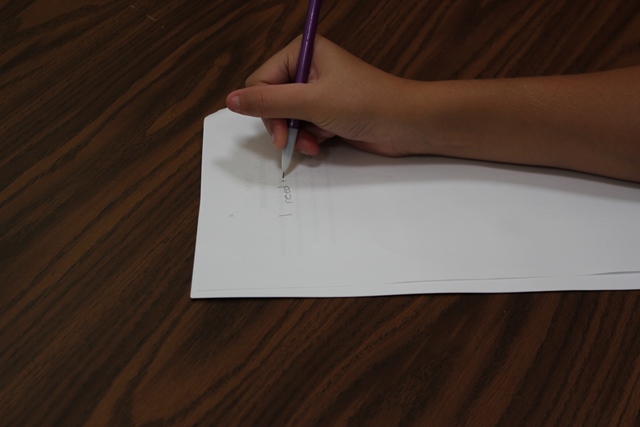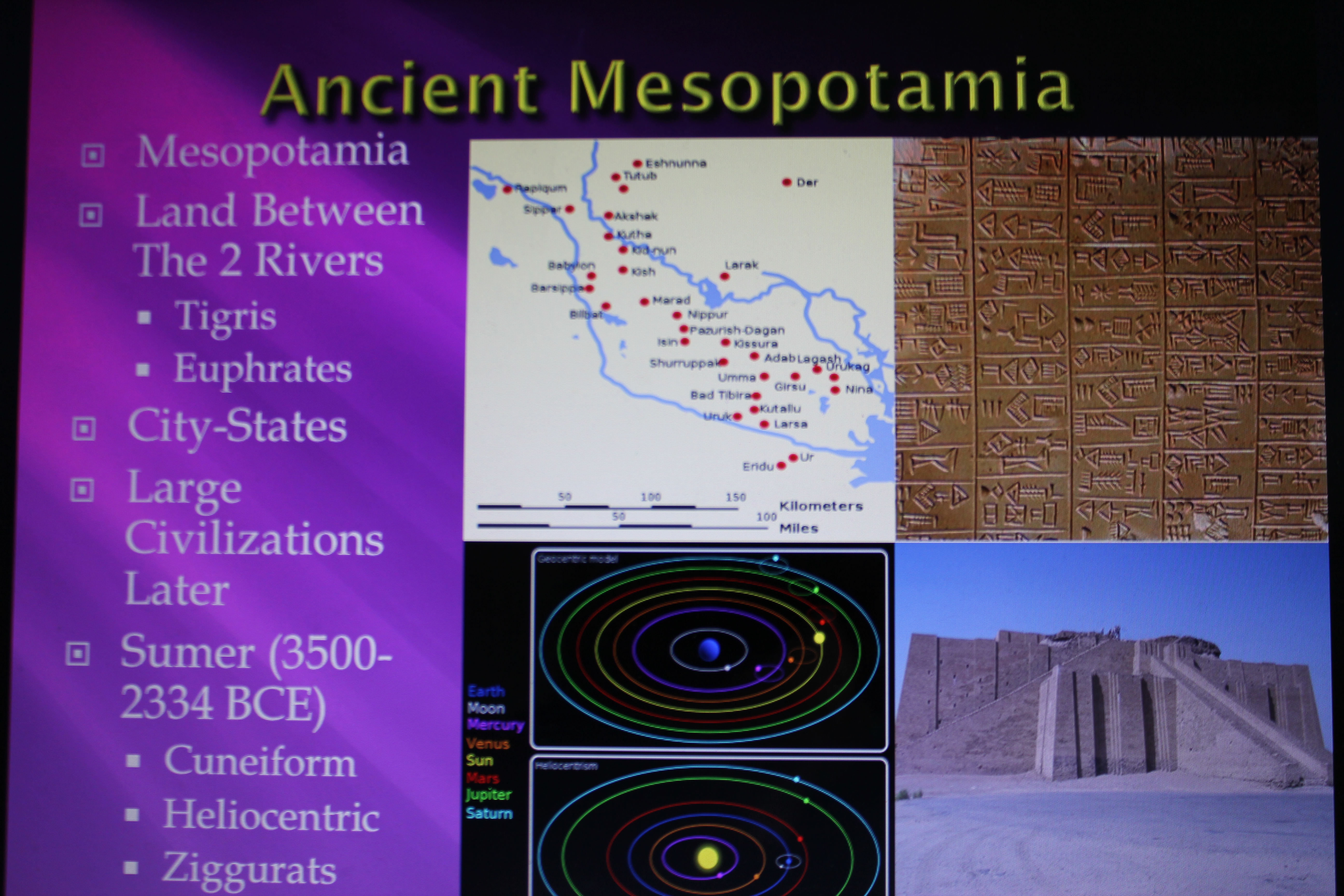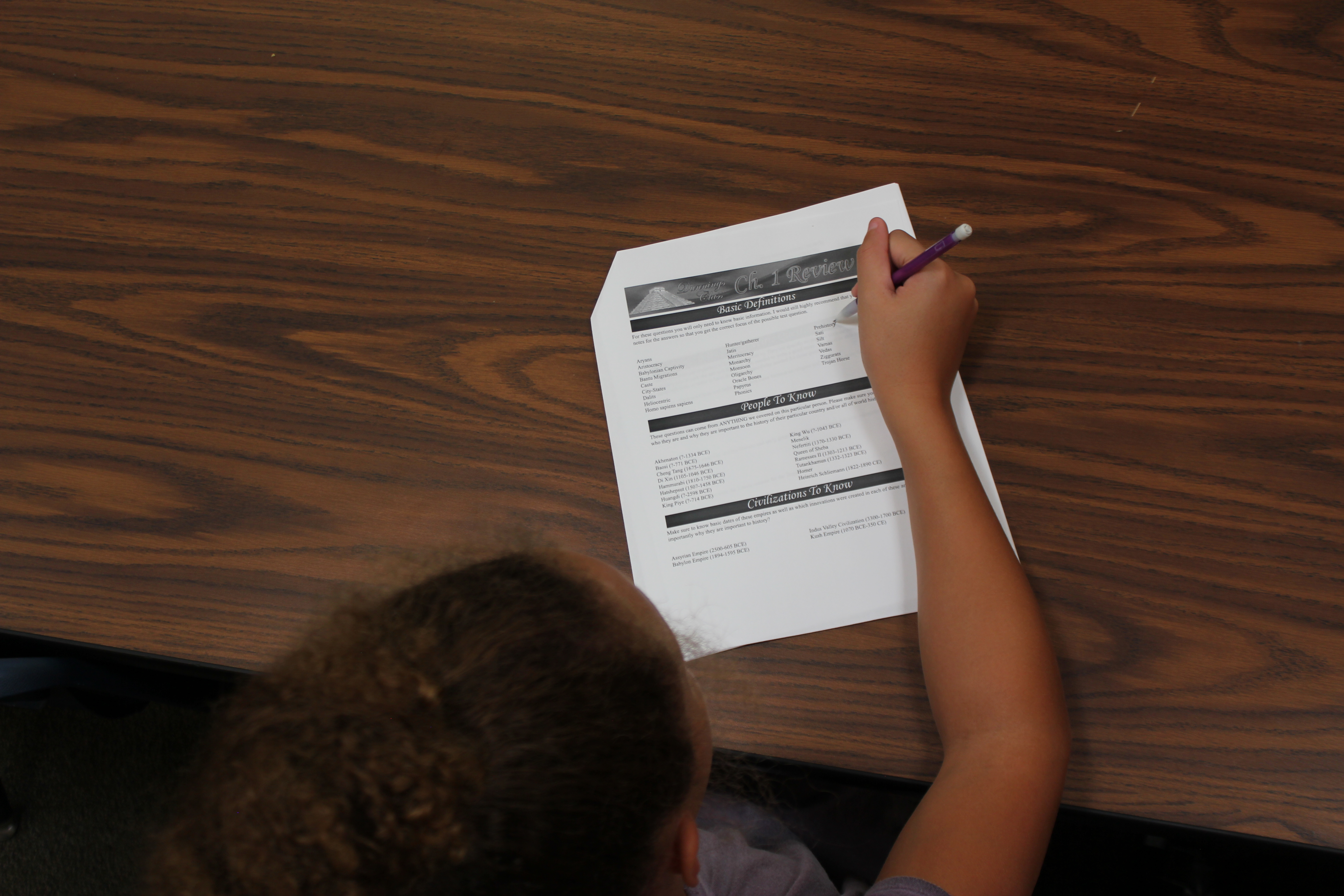Chapter 8
Unit 3 World History
The Creation of Adam from the Sistine Chapel ceiling. (Public Domain photo. Info can be found here)

The School of Athens was a painting by Raphael in which he connects older important people to those from later ages. He can be found in the middle talking to Socrates. (Public Domain photo. Info can be found here)
In this chapter we discuss the many facets of the European Renaissance and the intellectual thought that led to this movement. This is one of the few chapters where a great deal of time is spent speaking of art history (which I am painfully inadequate in discussing). Whenever possible, the students are shown the actual works of art from the artists and much of the quiz on this chapter revolves around matching the specific artist with their particular works of art. Later in the chapter we cover the scientific revolution and speak in broad terms of just how much impact it had on the world as a whole. After discussing science, we move on to the protestant reformation and speak on the effects Martin Luther had on Christianity and religious thought in the modern world. We also make connections between what Luther said and the philosophy of later Europeans that created the modern world. Students always get a kick out of Henry VIII and his reasoning behind the creation of the Church of England near the end of this. Lastly, there is a brief discussion of the age of absolutism as a precursor to the important revolts of the next unit.
Essential questions
The following questions are meant to be studied during the chapter as possible essay questions for your exam.
Please be ready for any of the following questions.
- What theological issues led to the Protestant Reformation and what were the unintended consequences of this (both short term and long term)?
- What philosophical shift drew Europe out of the Middle Ages and started an explosion of advancements?
- In what way was the Protestant Reformation connected to the Investiture Controversy of the previous era? Was this issue used by the Kings for revenge? If so, how?
- What were the specific philosophical differences Martin Luther had with the Catholic Church?
- Why do you think the men of the Scientific Revolution are so beloved in history despite the fact that they were far from the first to bring these ideas up? What makes them so important?
Chapter Content
Use the following links to find the content you are interested in or use the search bar at the top right to look for specific concepts.
Class
Resources
The following are a list of helpful resources that can be used in studying for this chapter.
Class Notes
These are the notes that I use for class. All information found in these notes lead directly to the test so they should be used in studying if you want the correct answers. This can only be accessed by students logged into their school account.
Chapter Powerpoint
This link will lead you to the PowerPoint for this unit. Those who missed class can use this to catch up on what was taught in class and what specific concepts to focus on in your studying.
Exam Review
This is the review that should be used to prepare for the exam. All exam questions will be connected directly to this document. Students are expected to answer all questions and are encouraged to know the rest also.
Review Videos
The videos to the right are placed here so that you can find other ways to study if that is your desire. Crash course videos tend to work pretty well for this type of studying as many of the AP World students use them to prep for tests. Please feel free to click on any of the videos in this feed for more info.
This Chapter in the news
Many students don’t realize that history is being debated and rewritten daily. These are stories related to our chapter from the news.
Machiavelli Was Right!
This article covers the things that Machiavelli taught about being a leader and takes the perspective that what he taught is actually the best way to teach a leader. They make the claim that leaders would be better for listening.








